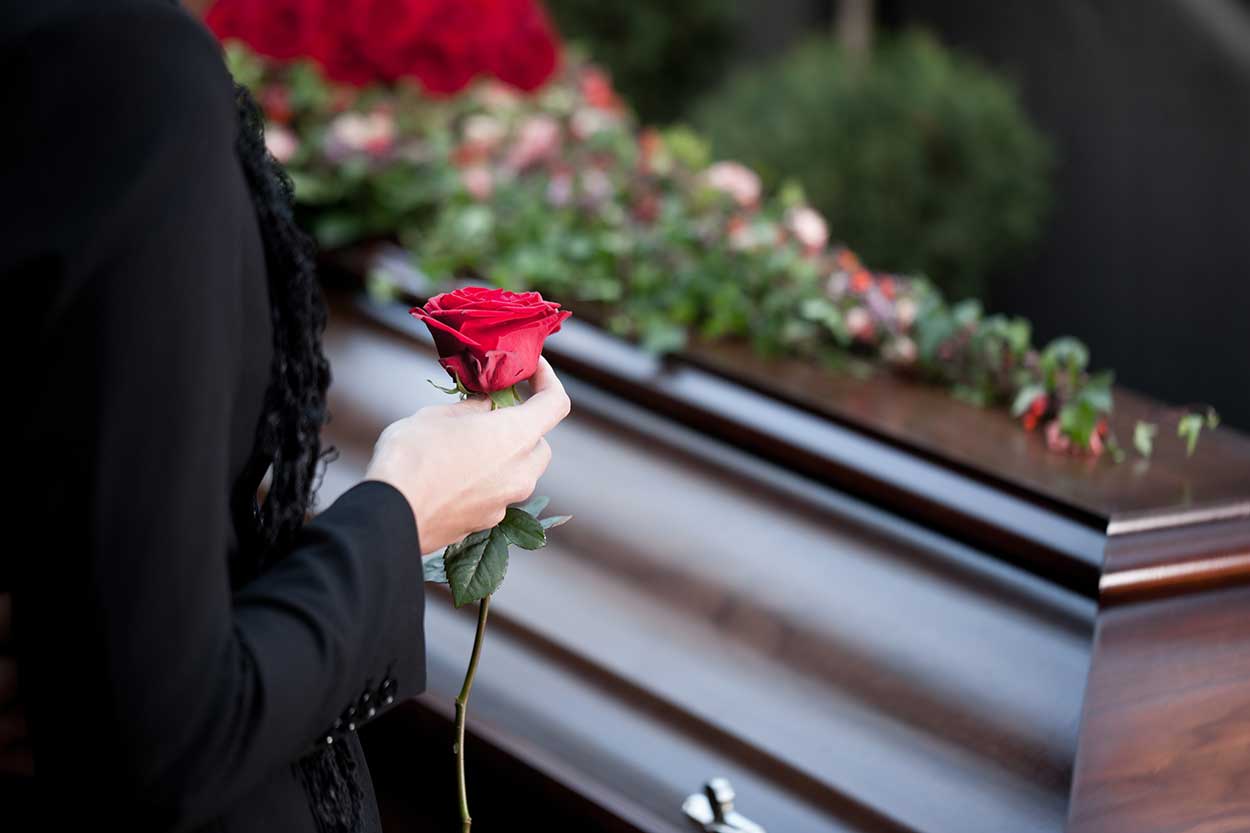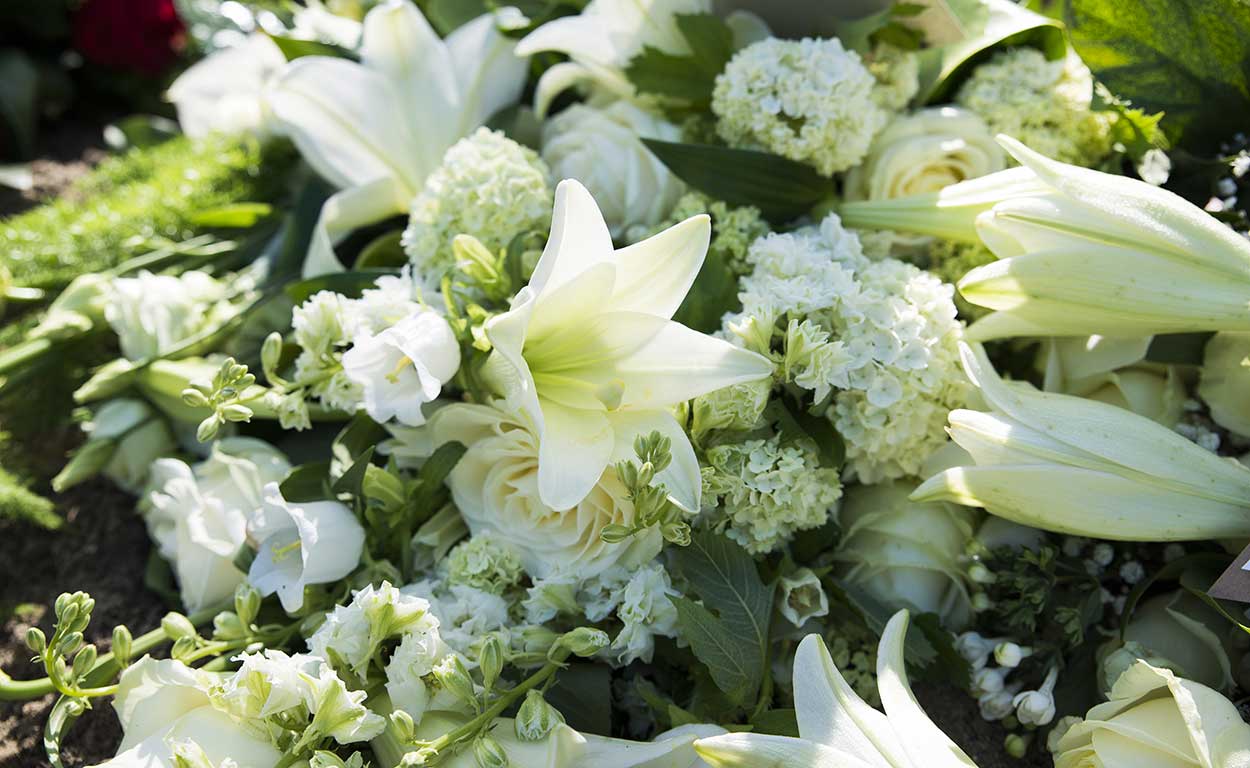Funeral Etiquette
Attending a funeral comes with its own set of rules, customs, and social standards meaning, for many, it can be difficult to know how to behave, what to wear, and what to say, especially to the immediate family.
Funerals have changed significantly over recent decades and each one is very much individual, but we hope our guide to funeral etiquette will answer your questions and help ensure the day runs as smoothly as possible.
Who Should Attend?
Unless the family specifies that they are holding a private service, anyone can attend a funeral and you don’t need to be personally invited to the service. Anyone who knew the deceased in any capacity is generally welcome to attend the service and pay their respects.
What Time Should I Arrive?
Can Children Attend the Funeral?
Children are usually welcome to attend the funeral however, if you’re thinking of taking a child along, it’s important that they know what to expect and that they are fully prepared emotionally. Whether they do will be down to the decision made by the parent or guardian. Their age and maturity will also help you to decide whether they should attend.
In addition to this, the relationship they had with the deceased is also a factor. It’s always a good idea to sit down with children and explain to them exactly what will happen so they can make an informed choice about whether they want to attend.
What to Wear to a Funeral
Traditionally, black is usually worn to funerals due to its historical association with mourning.
However, today the norm is to dress respectfully rather than mournfully, with men often wearing a dark suit with a black tie and women wearing smart, predominantly dark clothing.
Some people also opt to wear brighter colours as a celebration of life, or perhaps something that was meaningful to the deceased.
If you are unsure of what to wear, it’s advisable to check with those organising the funeral or dress neutrally, assuming a dark and smart dress code.

What to Take to a Funeral
Flowers
Whilst floral tributes are traditionally given at funerals, today many prefer to take donations for a specific charity instead. Where this is the case, the suggested charity will often be stated in the funeral notice or on the order of service booklets which will be handed to you at the church or crematorium.
Making Donations
In most services the family will arrange for a collection to take place after the service in aid of a charity that is close to them and the person who has passed away. There will normally be a donation box outside of the chapel where you are welcome to leave any contribution you wish.
Alternatively you are welcome to post a cheque to the funeral director who will add this to the collection on your behalf. If you do wish to send a cheque please make sure it is made payable to the charity and provide the name of the person who the donation is in aid of. You can also choose to make a donation directly to the charity that they have requested.
Words of Sympathy – What to Say at a Funeral
It’s often hard to know what to say, but simply expressing your deepest sympathy and offering some kind words about the departed is advisable. The key is to let the family know you care, keeping your words simple, respectful, and positive.
You’ll also be able to judge the tone of the funeral once you’re there – some will have a celebratory feel where you can talk about someone’s life with humour and laughter – but take your cue from the family.
If you are attending a funeral to support someone but do not know the deceased individual, then you have to be respectful and say things such as “you and your family are in my thoughts”. Other things you can say are “ I am sorry for your loss” or “they were a wonderful person and will be dearly missed”.
It is considered polite to speak to the chief mourners either before or after the funeral, as long as they are not finding it difficult to talk.
Read our completed guide on what to say to someone going to a funeral.
Unless There’s an Emergency, Try Not to Use your Mobile Phone During the Service
You should also avoid taking any photos during or after the funeral unless requested to by a chief mourner.
Where to Sit
It is important to remember that the immediate family and close friends will sit in the first few rows. You can then choose to sit in the remaining rows behind them.
Attending funerals of different faith
Taking photos at the funeral and posting on social media
What to do in a Funeral Procession
If you are in a funeral procession, you will travel in the cars that travel behind the hearse. When the cars arrive at the venue, you will then walk in with the family and close friends behind the coffin.
When Should I Exit a Funeral?
You should exit a funeral at the end of the service and after the immediate family members and close friends leave.
What Happens at the End of A Service
When the service finishes, the minister will leave and everyone will stand to pay their final respects. The coffin might remain so you can say one last goodbye but once the funeral has ended, the coffin will either be lowered in preparation for cremation or it will be taken to a grave.
What Happens After a Funeral
It is common for a wake to take place after the funeral where there will be refreshments and food. This can take place at the home of the deceased individual or at a venue.
Final Thoughts
There is a lot to think about when attending a funeral but you should remember that it is all about being respectful to the deceased individual and their family members. Therefore, there is certain etiquette that has to be followed in order to ensure you are respectful throughout.
At NC Funeral Directors, we understand that this is a very difficult time and are here to help with support, and provide guidance throughout the entire process.

